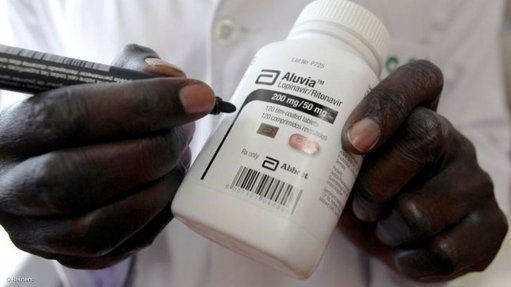
Photo by: Reuters
The number of patients receiving antiretroviral therapy from Joburg clinics has increased from 39 924 in 2011 to 296 485 in 2017, which represents an enormous 643% jump.
HIV counselling and testing services and anti-retroviral treatment including prevention of mother to child transmission is offered at all City of Johannesburg clinics.
To increase access to information and treatment of HIV, the City’s Health Department rolled out the Jozi Ihlomile (Joburg is armed) HIV and AIDS door-to-door education programme in 45 deprived wards within the City.
The community education programmes prioritise prevention of new HIV infections (combination prevention) but include health care for people with HIV and TB, and social services for all communities, especially vulnerable children. The educator refers households or individuals to services provided by government and non-governmental organisations in the ward and follows up to check progress.
The table below provides a summary of the Jozi Ihlomile HIV and AIDS door-to-door education programme for 2016/17.
Jozi Ihlomile HIV and AIDS door-to-door education programme in 2016/17
| July 2016 - June 2017 | Total |
| Houses visited | 1 029 003 |
| People educated | 1 713 433 |
| Orphans & vulnerable children identified | 616 |
| Referrals | 192 628 |
| Follow-up referrals | 21 722 |
| Condoms: Male distributed | 9 277 130 |
| Condoms: Female distributed | 641 739 |
“The key to halting the HIV epidemic is to regularly test all communities at risk for HIV and initiate antiretroviral therapy treatment for all those who test HIV positive,” says Dr Baski Desai, Director of Public Health in the City.
Reducing new infections
The rate at which HIV positive mothers transmitted the virus to their baby has decreased to less than 2% as a result of the prevention of mother to child transmission programme implemented in all health facilities within the City, says Dr Desai.
The massive rollout programme of the antiretroviral therapy programme also contributed to the reduction of new HIV infection as a result of viral suppression for patients who take their medication regularly.
“The AIDS epidemic is not merely a medical condition; it poses continuous challenges to the entire socio economic fabric of our society and future generations. Statistics indicate that those who live in poor socio economic conditions are at higher risk in our population,” says Dr Desai.
Issued by City of Joburg